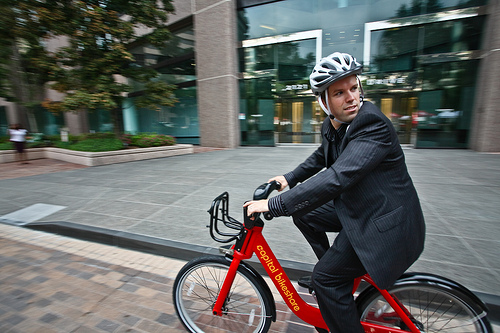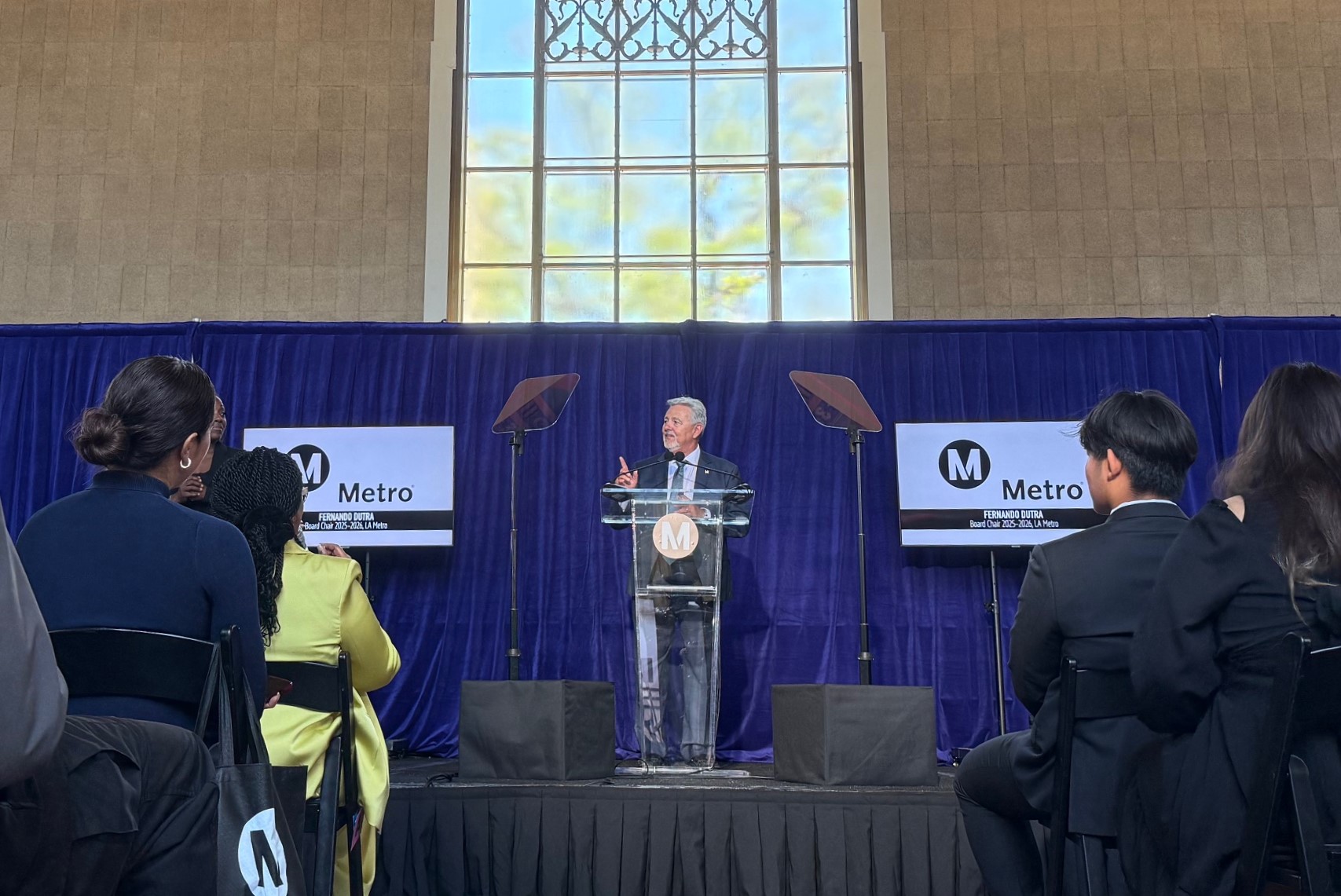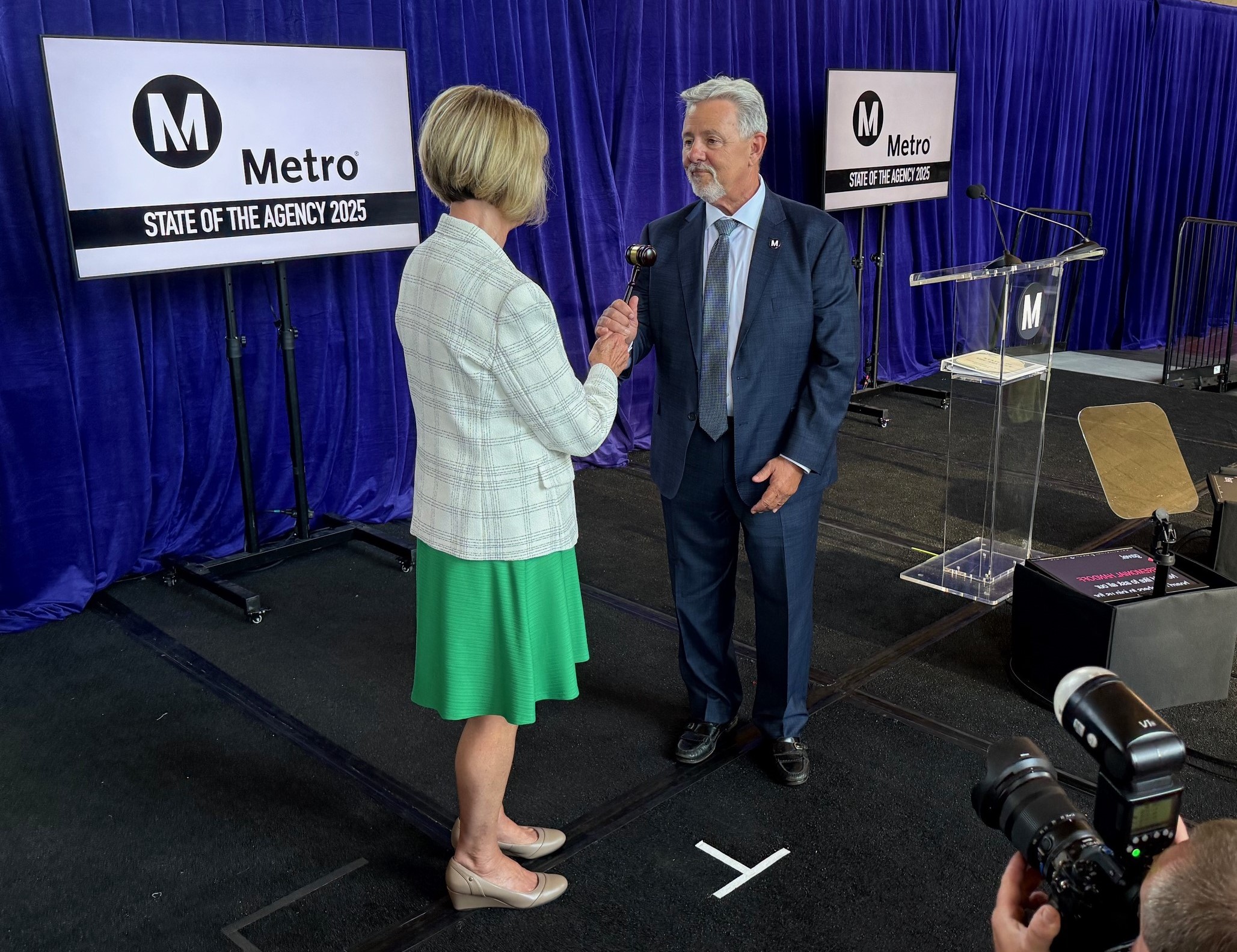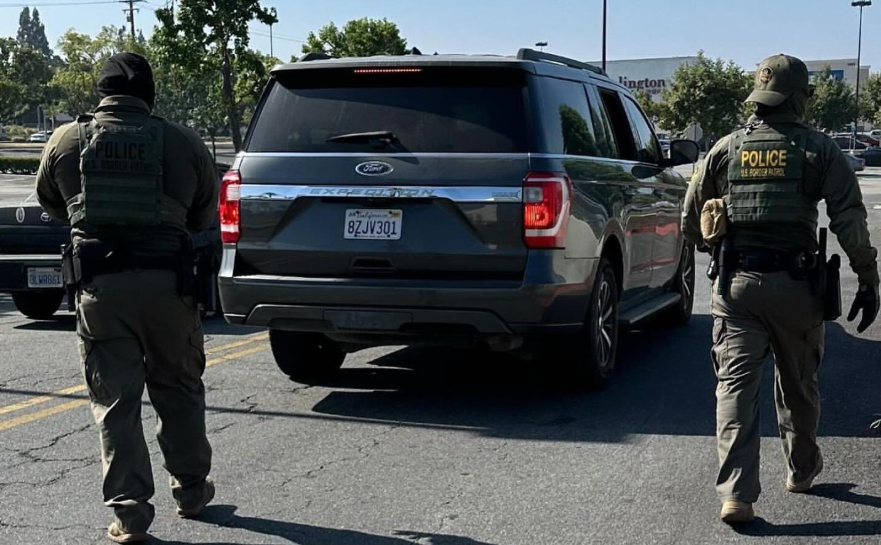Bike- and scooter-share systems across the country may soon be eligible for the federal transit dollars they need to remain a stable and thriving element of our transportation landscape, if advocates succeed in getting a hard-fought bill through Congress.
Last week, Congressional Bike Caucus co-chair Earl Blumenauer (D-OR) and co-sponsors Ayanna Pressley (D-MA) and Vernon Buchanan (R-FL) re-introduced the long-stalled Bikeshare Transit Act, which would amend federal code to include micromobility projects under the umbrella of transit improvements that may get USDOT funding. Right now, transit agencies can use federal money to build parking for privately owned bikes at stops and stations, but not for micromobility hubs that riders could use to complete the last mile or two of their journey.
Scooters would also get a piece of the pie, too; the bill would make all forms of shared micromobility eligible for funding through the Congestion Mitigation and Air Quality Improvement Program, with scooter-share specifically named as a potential recipient.
Advocates say that shift could go a long way toward stabilizing and expanding shared cycling and scooting options, which have been proven to lessen vehicle emissions, improve community health outcomes, reduce congestion, and other benefits — especially when systems complement transit networks.
Bikeshare and its cousins haven't garnered federal support partly because micromobility is still relatively new here. Although informal efforts to put community-owned cycles on the streets date back to at least Portland's Yellow Bike program 1994, the nation's first official bikeshare system, D.C.'s Capital Bikeshare, began operations just 10 years ago.
As cycle-docking stations proliferated across the country, however, annual trips exploded more than 10,000 percent between 2010 and 2017. When dockless scooter-share arrived in 2018, ridership more than doubled, before nearly doubling again and topping 136 million two-wheeled journeys in 2019 alone.
That revolution nudged local transit networks; in the seven largest U.S. cities, underground rail rose 6.9 percent between 2012 and 2018 because of bike share, while light rail spiked another 4.2 percent. (Bus ridership fell, maybe because because residents replaced short bus trips with medium-length bike rides, swapping a low-carbon mode for a no-carbon mode.)
Source: NACTO
But the revolution in urban mobility happened largely without federal assistance — and advocates have wondered how much bigger it could have been had micromobility been funded like public transit.
Despite year-on-year increases in rides, the total number of bikeshare systems shrank in recent years. Today, fully 87 percent of all shared-cycling trips take place in just six metro areas: San Francisco, Boston, Chicago, Honolulu, New York, and Washington, D.C., all of which have made significant local investments into docked systems, and all but one of which partners with Lyft to administer its programs. Others have struggled to find the public or private funding for creating hubs – and many have run out of money before they ever really took root, as did programs in Denver, Colo., Phoenix, Ariz., and Topeka, Kan., last year.
Some experts have argued that successful, publicly managed bikeshare programs will remain rare without public investment.
"Bikeshare systems either have to make it on their own or be subsidized like the rest of the transportation system," wrote Chris Hamiltion, former bike and pedestrian coordinator for Key West, Fla. "While relatively inexpensive compared to investment in other modes, there is a substantial cost [to run a bikeshare program]. Other than New York City, there are few, if any, cities that have put bikeshare systems on their streets without the help of federal, state, or local public dollars paying for most of the cost."
Reps Blumenauer (D-OR), Pressley (D-MA), & Buchanan (R-FL) just introduced a bill to make bikes, bikeshare, & e-bikes eligible for pre-tax commuter benefits.
— David Zipper (@DavidZipper) February 1, 2021
If it passes (possible!), this would boost cycling nationwide.
Download: https://t.co/bJ3UPZwiiVhttps://t.co/xR9UUzT3qG
Private scooter companies, including Bird, Lime and Spin, have fared better in many communities, but some advocates think that leaving last-mile mobility to venture-backed companies requires too many trade-offs. Dockless systems have few incentives to keep fleets in Black and Latinx neighborhoods lacking mobility options — 83 percent of Lime riders, for instance, are white — or to stay in cities when profits slump. Moreover, almost every private micromobility outfit pulled its vehicles off streets at the beginning of the pandemic, stranding riders who had come to rely on the scooters.
Advocates hope that freeing more federal money for micromobility might encourage private providers to partner more closely with cities — and to stay put when times get tough.
"COVID-19 has only increased the popularity of bicycle commuting and bikeshare systems as people seek safe transportation options," wrote Blumenauer in a release. "Even when the pandemic ends, this demand for biking will remain." Blumenauer argues that the federal government must step up in order to provide the funding, flexibility, and incentives for strengthening bike infrastructure.
The micromobility companies think so, too.
“If we’re serious about tackling climate change, road safety and congestion, the least Congress needs to do is bring commutes via micromobility to parity with car commuting," said Russell Murphy, a spokesperson for Lime. "Cities have adapted to accommodate cyclists and other micromobility users as a result of COVID-19 and it makes sense that how we think about commuting should change too."
Blumenauer paired last week's micromobility legislation with a second bill, the Bicycle Commuter Act, which would reinstate a pre-tax commuter benefit for cyclists that the Republican-lead house axed in 2017 and expand it to cover bikeshare benefits. However, scooter-share was not included in that bill.
"[We need] the passage of a comprehensive Bikeshare Transit Act that also extends pre-tax benefits to other popular forms of micromobility,” Murphy of Lime adds.
Advocates believe both bills will progress in the Democrats' impending infrastructure package.
"Bike share systems expand cities' transit networks and make short and last-mile trips — the majority of trips in cities — convenient and accessible," said Alex Engel, spokesperson for the National Association of City Transportation Officials. "The most successful bike share programs are planned hand-in-hand between cities and operators, and cities will benefit from exploring all possibilities for building and expanding these crucial mobility systems. Making bike share eligible as a pre-tax benefit is a no-brainer move to make this convenient and sustainable option easier to access for more people."







